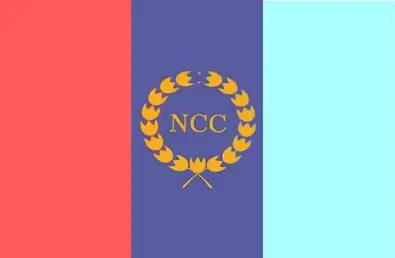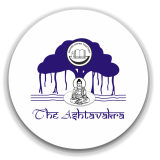ASHTAVAKRA NATIONAL CADET CORPS
(NCC)
INTRODUCTION
The National Cadet Corps (NCC) seeks to involve student youths of the country by constructively utilizing their energies. NCC is an important activity for young adults in which they get an opportunity to discover the power and potential of team work in situations which challenge their own abilities. The tasks and activities undertaken in NCC help youth to unleash its creative potential in human relations, while giving them an exposure to ground realities. Youth learns the key to co-operative and harmonious living while engaging in activities like camping, etc while at the same time they imbibe a sense of commitment and camaraderie as they work closely with the larger community. NCC draws out the potential of the youth as it works closely for community development in times of peace as well as natural or manmade exigencies. NCC gives tremendous opportunity to one and all for betterment, irrespective of caste, creed, religion or economic status and instils in them qualities like nationalism, patriotism, discipline and self-confidence. In addition, cadets of NCC also avail the opportunities for participation in various adventure activities, like Rock Climbing, Trekking, Cycle Expeditions, White Water Rafting, Para-trooping, Civil Defence, Self Defence, Aero Modelling and Horse Riding etc. At the same time trekking programme and organized annually to places in Himalayas in Himachal Pradesh, Uttra Khand and Coastal trek in Goa.
Birth of the National Cadet Corps
The Kashmir War of 1948 taught a very important lesson to India, that freedom needs to be protected by strong Armed Forces. Its immediate manifestation was that the recommendations of Kunzuru committee were placed before the Constituent Assembly (Legislature) on 13 Mar 1948. A draft Bill was sent to the Constituent Assembly (Legislative) on 19 Mar 1948, which evoked great interest and enthusiasm amongst all members. After due deliberations and amendments, the Bill was passed by the Assembly on 08 Apr 1948. The Central Govt accepted the opinion of the Provincial Govts and the Standing Committee’s recommendations for the formation of a Cadet Corps which was to be named as “National Cadet Corps”, as recommended by the Kunzuru Committee. The Bill received the assent of the Governor General on 16 Apr 1948, and the National Cadet Corps came into being by an Act of the Parliament Act No. XXXI of 1948 designated ‘The National Cadet Corps Act 1948’. This Act with 13 clauses, prescribed the formation of the National Cadet Corps in India. The first step in the process of raising of the NCC was setting up of the NCC Secretariat now called Headquarters Directorate General NCC. In fact, even before the NCC Bill was passed by the Constituent Assembly (Legislative), the Ministry of Defence had set up the nucleus of the NCC Secretariat, with Col (later retired as Chief of Army Staff) Gopal Gurunath Bewoor as first Director of the NCC. He took over as Director of NCC on 31 Mar 1948
Inauguration of NCC
The schools and colleges opened after summer vacation and the NCC of Independent India was inaugurated on 15 Jul 1948. The journey of this Indian youth organization, which has now become the largest uniformed youth organization in the world had begun. In the year 1948 a total of 96 units of Senior Division were raised, comprising variety of units to include one Armoured Corps, three Artillery, five Engineers, two Signals and two Medical – and 83 companies of Infantry. As there was some delay in the establishment of NCC in UP, Madras and Bihar, whose Govts wanted every student joining NCC to be verified by police prior to enrolment, only 20,000 cadets had joined the NCC in the year 1948. Now, we have more than 13 lakh cadets on its roll.
MOTTO
The need for having motto for the Corps was discussed in the 11th Central Advisory Committee (CAC) meeting held on 11 Aug 1978. The mottos suggested were “Duty and Discipline”; “Duty, Unity and Discipline”; “Duty and Unity”; “Unity and Discipline”. The final decision for selection of “Unity and Discipline” as motto for the NCC was taken in the 12th CAC meeting held on 12 Oct 1980.

NCC SONG
An Official Song of the NCC titled “Kadam Mila Ke Chal” was adopted in 1963. This was, however, changed to the current NCC Song titled “Ham Sabh Bhartiya Hain” in Oct 1982. “Ham Sabh Bhartiya Hain” – NCC song is written by Sudarshan Faakir.AIMS OF NCC
- To Develop Character, Comradeship, Discipline, Leadership, Secular Outlook, Spirit of Adventure, and Ideals of Selfless Service amongst the Youth of the Country.
- To Create a Human Resource of Organized, Trained and Motivated Youth, to Provide Leadership in all Walks of life and be Always Available for the Service of the Nation.
- To Provide a Suitable Environment to Motivate the Youth to Take Up a Career in the Armed Forces.
OBJECTIVES OF NCC
- Reaching out to the maximum youths through various institutions.
- Make NCC as an important part of the society.
- Teach positive thinking and attitude to the youths.
- Become a main source of national integration by making Nee as one of the greatest cohesive forces of our nation irrespective of any caste, creed, religion or region.
- Mould the youth of the entire country into united, secular and disciplined citizens of the nation.
- Provide an ideal platform for the youth to showcase their potential in nation building.
- Instill spirit of secularism and united India by organizing national integration camps all over the country.
- Reach out to the youths of friendly foreign countries through Youth Exchange Programmes (YEP).
MAJOR ACTIVITIES UNDER NCC
1. National Integration Camp (NIC)
2. Adventure Camps
3. Training Camps
4. NCC Pre-Republic Day Parade Camp
5. NCC Republic Day Parade Camp
6. National Youth Festivals
7. National Cadet Corp (NCC) Award etc.,

